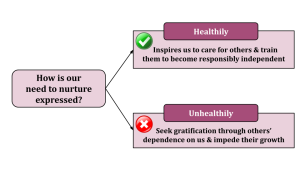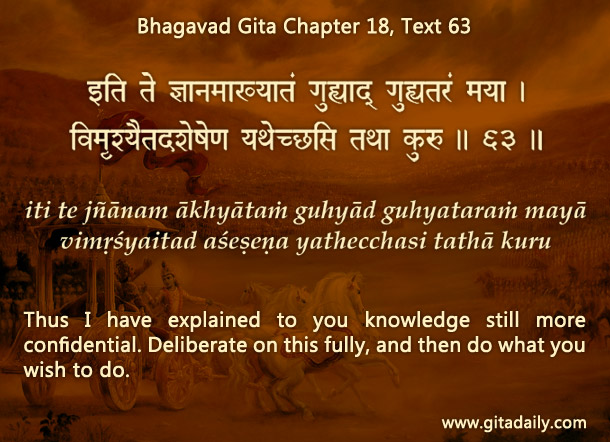We living beings have a deep need to nurture. That noble need is what inspires us to become parents, even if caring for infants sometimes involves sleepless nights and round-the-clock anxiety. We experience an extraordinary sense of satisfaction, even exhilaration, with the recognition that we have the responsibility and the capacity to care for another living being. This need to nurture inspires us not just to parent, but to also lead, educate and mentor.
beings have a deep need to nurture. That noble need is what inspires us to become parents, even if caring for infants sometimes involves sleepless nights and round-the-clock anxiety. We experience an extraordinary sense of satisfaction, even exhilaration, with the recognition that we have the responsibility and the capacity to care for another living being. This need to nurture inspires us not just to parent, but to also lead, educate and mentor.
Unfortunately, like all other features of our inner world, even this noble need can be distorted by selfishness. Scarily, because this need is a comparatively selfless need, its distortion is also covered by a facade of selflessness. Let’s see how.
When our need to nurture is distorted, we seek gratification in the other person’s dependence on us — and seek gratification to such an extent that we don’t let them become independent. Because we believe that we are actually caring for them, we find this distortion not only difficult to detect but also easy to defend. We may unwittingly undercut their growth toward independence by labeling such growth as whimsical, ungrateful and dangerous. While those three are negative possibilities that we need to prevent, we also need to aid in the unfolding of the positive possibility: their growth toward responsible competent independence. Only by such growth can they become full persons in their own right and become ready for situations when we won’t be around to guide them.
Pertinently, the Bhagavad-gita models a healthy nurturing relationship. Therein, Krishna guides Arjuna not in a way that makes Arjuna chronically dependent on Krishna for guidance, but in a way that equips Arjuna to become competently independent, whereby he can make wise decisions himself. Toward the end of the Gita, Krishna demonstrates the success of his guidance — and his trust in Arjuna’s independent thoughtfulness — by placing the onus on Arjuna to deliberate and decide (18.63).
One-sentence summary:
Don’t be dependent on your dependents’ dependence on you — train them to become responsibly independent.
Think it over:
- How is our need to nurture a noble need?
- How can this need be distorted?
- How does the Gita model a healthy nurturing relationship?
***
18.63: Thus I have explained to you knowledge still more confidential. Deliberate on this fully, and then do what you wish to do.
To know more about this verse, please click on the image


knowledge is power